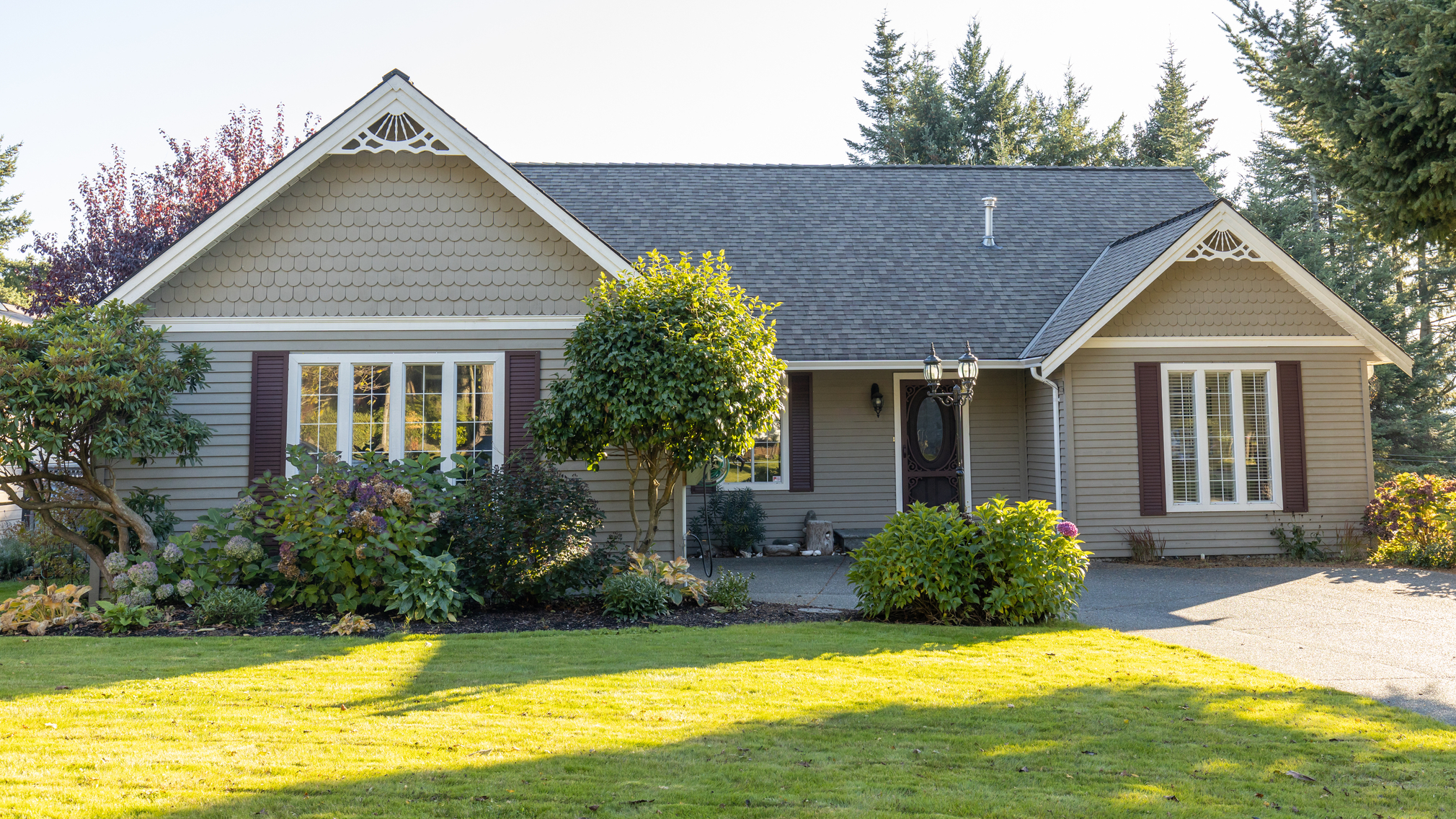Can You Buy a House With No Credit?
No credit may mean you're debt free or have yet to acquire any debts, but that doesn't mean you can't buy a home.


Written by Alycia Lucio on October 7, 2024
Buying a house with no credit is possible if you’re using cash to make your purchase. If you plan to buy a house with a mortgage, however, you’ll typically need a credit score and an established credit history to be approved for a loan. Your score informs lenders of the likelihood that you’ll repay the loan and dictates your interest rate.
Some lenders may use your recurring debt payments in place of a credit history to qualify you for specific government-backed loans, as long as you can show proof of making on-time payments for an entire year. Speak with a mortgage loan officer to learn about no credit home loan options.
No credit vs. bad credit
Not having a credit score simply means you don’t have any active credit accounts reported to one of the three credit bureaus. It can also mean your credit history is too limited to generate a viable credit score, which typically happens among people who don’t open credit-based accounts, repay debts before a report is made to the credit bureaus, or pay for everything in cash. Having a bad credit score, often referred to as poor or low credit, means you may have had issues repaying debts. Credit scores are typically ranked from poor to excellent:
Poor: Scores of 580 and below
Fair: Scores between 580 and 670
Good: Scores between 670 and 740
Very good: Scores between 740 and 800
Excellent: Scores of 800 and above
How to buy a house with no credit
When credit is out of the equation, you may need to get crafty with your home-buying approach. Here are some tips that may make it easier to buy without credit.
Pay in cash
If you have the means, you can make an all-cash purchase to buy a home. This allows you to completely forgo the mortgage application and credit check.
Make a 20% down payment
Making a down payment of 20% or more means you’ll have to borrow less money. Putting down more also demonstrates to lenders that you’re less of a lending risk, as you likely have the funds to make your monthly payments despite a lack of credit history. According to Zillow’s home buying trends, 43% of borrowers used gift money or loans from friends or family to help with their down payment in 2023. This is something to consider if you don’t have enough credit history or enough funds for the down payment to make up for a lack of credit history.
Apply for an FHA loan
Certain government-backed loans, such as FHA loans, are available to help people with varying financial situations purchase a home. While FHA loans generally allow credit scores as low as 500, lenders are legally prohibited from using a borrower’s lack of credit history to reject their mortgage application.
The FHA categorizes this stipulation as a nontraditional credit history, in which case the lender will obtain a nontraditional merged credit report (NTMCR) or create a credit history based on one or more of the borrower’s recurring payments, such as:
- Rental payments
- Utility payments
- Auto insurance payments
- Other means of direct access from credit providers
When creating a credit history based on these types of recurring payments, lenders prefer to see at least a year of on-time payments, as it demonstrates a pattern of reliability. USDA, VA, and some conventional loan lenders typically do the same.
Find a lender who will manually underwrite your loan
Mortgage underwriting is the process by which lenders verify a borrower’s income, employment history, credit history, financial accounts, and debt obligations to assess trustworthiness and decide whether to grant loan approval. The process is typically automated using mortgage underwriting software, and requires a credit pull to view a borrower's credit score and history.
With a lack of credit history, the lender will likely turn to manual underwriting. With manual underwriting, the lender will evaluate your financial documents by hand. This means they’ll likely ask for specific documents, including:
- Proof of on-time payments, like rent, utilities and insurance
- Income and employment verification, such as tax returns, pay stubs and a letter from your employer
- Bank statements and savings account statements
Apply with a co-borrower or co-signer
A co-borrower is someone who intends to share the financial obligations of the mortgage with you. A co-signer agrees to back your mortgage financially if you default, but has no rights to the home. When you have no credit, applying for a joint mortgage or having a co-signer with good credit can help satisfy the lender’s loan qualification requirements and get you better loan terms.
Remember, the co-borrowing criteria will vary by lender and loan type. Some loans, like FHA, may require the co-borrower to be a relative or spouse and live in the home with you.
Consider seller financing
Seller financing is when you get a mortgage to buy a home from the seller, rather than a bank or mortgage lender. If the seller owns the home outright or has enough equity to pay off the rest of their loan, they can choose to finance your home purchase. With seller financing, there’s no mandated credit check or down payments. However, the actual terms are between you and the seller, as it’s a private contract.
Why does credit score matter?
Lenders use credit scores and history to assess lending risk. A mortgage borrower with a well-established credit history shows their ability to repay and manage debt. Lenders can use this information to determine how likely you are to make payments on time and repay a mortgage. Some government-backed loans are specifically designed to help borrowers with low credit buy a house.
You can build your credit by paying your bills on time, opening a credit card, or becoming an authorized user of someone else’s card. The best way to manage debt is by keeping your credit utilization below 30%. There are also services you can use to get your rent and utility payments added into your credit report to help strengthen your credit portfolio.
What credit score do I need to buy a house?
The credit score you need to buy a house will vary by loan type. Whether you qualify for specific loan types will also vary by your financial factors, such as debt-to-income ratio (DTI), down payment amount, loan-to-value ratio (LTV), and your income history.
These are the typical credit scores needed to buy a house:
- Conventional loans require a credit score of at least 620
- FHA loans require a credit score of at least 500 with a 10% down payment or a credit score of 580 with a 3.5% down payment
- VA loans require a minimum credit score of 580
- USDA loans require a minimum credit score of 580
While lenders prefer you have a good credit history, don’t let a lack of credit history stop you from applying for a mortgage. The fastest way to determine your eligibility for a mortgage is by speaking with a loan officer about getting pre-qualified. At Zillow Home Loans, you can get pre-qualified with us in as little as five minutes.*
*An equal housing lender. NMLS #10287
How much home can you afford?
At Zillow Home Loans, we can pre-qualify you in as little as 5 minutes, with no impact to your credit score.
Zillow Home Loans, NMLS # 10287. Equal Housing Lender
Get pre-qualifiedHow much home can you afford?
See what's in reach with low down payment options, no hidden fees and step-by-step guidance from us at
Zillow Home Loans.
Zillow Home Loans, NMLS # 10287. Equal Housing Lender
Calculate your BuyAbility℠
Related Articles
Get a mortgage with Zillow Home Loans
Go from dreaming to owning with low down payment options, competitive rates and no hidden fees. A dedicated loan officer will guide you until you have your keys in hand.

Zillow Home Loans, NMLS #10287. Equal Housing Lender.



